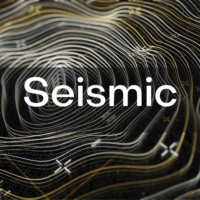
Webinar
Wind Design Series Part #6 | Solar PV: Seismic and Gravity Load Considerations and Solar Carport
May 12, 2020 | Tue 12:00 America/Chicago
Duration: 90 minutes
CE Credits: 1.5
$250
This DE14 presentation will review the seismic requirements for design of a low-profile, unattached solar PV system on a low-slope roof. The session will also introduce SEAOC PV-1: Structural Seismic Requirements and Commentary for Rooftop Solar PV Arrays, including provisions adopted by ASCE 7. The DE15 presentation will show how gravity loads should be addressed in the design of structures that support roof-mounted photovoltaic (PV) panels. Gravity loads associated with PV panels are more complicated than they might seem, particularly with respect to existing buildings. Best practices and recommendations for dealing with gravity loads will be discussed, as will the associated upgrade triggers in the International Existing Building Code. The DE16 presentation shows the application of ASCE 7-16 and 2018 IBC to an open-grid carport structure supporting a photovoltaic (PV) panel system. This presentation will briefly cover Wind Design Forces (MWFRS), Combinations of Loads (MWFRS), Design Requirements for MWFRS, Wind Design Forces (C&C), Combinations of Loads (C&C) plus additional considerations.
- Course will award 1.5 hours of continuing education
- This course is Diamond Review approved in 49 states. New York does not accept hours from recordings.
Please note: This webinar is part of the Wind Design Series and is not included in the NCSEA Webinar Subscription.
This DE14 presentation will review the seismic requirements for design of a low-profile, unattached solar PV system on a low-slope roof. The session will also introduce SEAOC PV-1: Structural Seismic Requirements and Commentary for Rooftop Solar PV Arrays, including provisions adopted by ASCE 7. The DE15 presentation will show how gravity loads should be addressed in the design of structures that support roof-mounted photovoltaic (PV) panels. Gravity loads associated with PV panels are more complicated than they might seem, particularly with respect to existing buildings. Best practices and recommendations for dealing with gravity loads will be discussed, as will the associated upgrade triggers in the International Existing Building Code. The DE16 presentation shows the application of ASCE 7-16 and 2018 IBC to an open-grid carport structure supporting a photovoltaic (PV) panel system. This presentation will briefly cover Wind Design Forces (MWFRS), Combinations of Loads (MWFRS), Design Requirements for MWFRS, Wind Design Forces (C&C), Combinations of Loads (C&C) plus additional considerations.
- Course will award 1.5 hours of continuing education
- This course is Diamond Review approved in 49 states. New York does not accept hours from recordings.
Please note: This webinar is part of the Wind Design Series and is not included in the NCSEA Webinar Subscription.
Speakers:
John Wolfe, S.E., is a founding partner of Mar Structural Design. He was the lead structural consultant for California’s Solar Permitting Guidebook, and is the principal author of the Structural Criteria for Residential Rooftop Solar Energy Installations, the Structural Technical Appendix for Residential Rooftop Solar Installations, and the Structural Commentary for the National Simplified Residential Roof Photovoltaic Array Permit Guidelines, which have become key references for the engineering community and solar industry.
Gwenyth R. Searer, P.E., S.E., is a Principal at Wiss, Janney, Elstner Associates, Inc. She is a licensed structural engineer who specializes in existing buildings. She serves on several state and national committees including the SEAOC PV Committee.
Shaun Walters, P.E., S.E., an associate and senior project manager at KPFF Consulting Engineers received a BS in Civil Engineering from SDSU, and MS in Structural Engineering from the UCSD. Since joining KPFF in 2011 he has been involved in the design of over 400 solar projects across 32 states, and 4 countries. In addition to overseeing solar projects, Shaun has managed large-scale hospitality and tribal gaming projects along with being the lead engineer on Hotel Churchill, the first historic building retrofit in San Diego using Fluid Viscous Dampers.
NCSEA Webinars and Digital Events Cancellation and Refund Policies
Webinar Cancellation
By NCSEA: If a webinar is canceled by NCSEA, all registered attendees will be notified via email. NCSEA will issue a full refund if the event cannot be rescheduled. If the event is rescheduled and a registrant can not attend on the rescheduled date, NCSEA will offer a credit in the amount of the purchase price.
By Registrant/Attendee: Cancellations must be made at least 24 hours in advance of the webinar (or the first webinar in the case of a series or bundle) and in writing via email ( ncsea@ncsea.com) with the subject line “NCSEA Webinar Cancellation” and include the following in the body of the email: Title of Webinar, Order/Invoice Number, Name of Registrant, and Reason for Cancellation. No telephone refund requests will be accepted.
If the request has been approved, NCSEA can do one of the following:
- Refund the amount back to the original order payment method (a $25 cancellation processing fee will be assessed)
- Issue a full credit on the purchaser’s account that can be used towards a future webinar/event.
If you are unable to attend the webinar and the cancellation deadline has passed, a recording will be available (in most cases) in the Education Portal after the webinar has concluded.
Refunds are not granted due to attendee technology issues. It is your responsibility as the webinar attendee to test your computer setup prior to the start of the webinar.
On-Demand Purchases
All on-demand (recorded) webinars, courses, and series sales are final.




